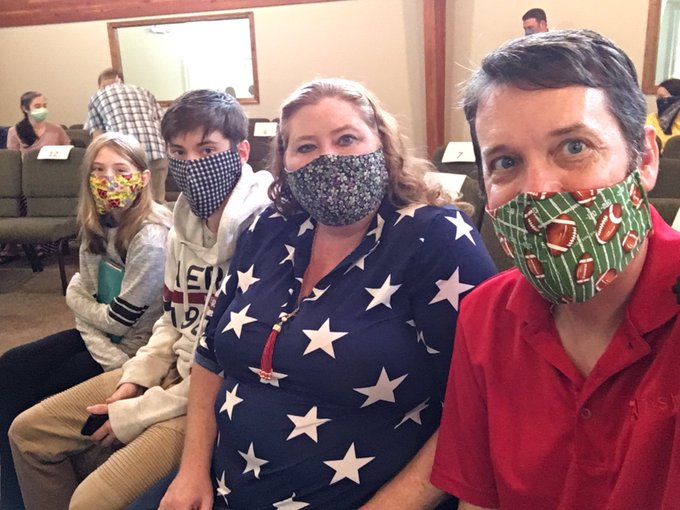On Sunday morning, my church had in-person services for the first time since March 15. After that service, shelter-in-place orders were imposed in Georgia and around much of the country. My church, along with many other places of worship, went to online, virtual services until the danger of the Coronavirus had subsided, if not totally passed.
Church leaders waited until the curve of virus cases in the two counties that the church primarily serves were well past the peak and there were few new cases. Combined, the two counties have had more than 600 confirmed COVID-19 cases and 21 deaths. Gov. Brian Kemp’s Executive Order has allowed churches to reopen for in-person services if they obey strict guidelines for several weeks now, but most churches in my area have elected to continue meeting online only.
When the decision was made to hold in-person services, several changes were made to the normal routine. First, Sunday School was canceled and a second worship service was added to accommodate social distancing. The church sanctuary was disinfected between the two services. All attendees were required to wear masks and hand sanitizer dispensers were placed prominently at the single entrance being used.
The shortage of sanitizer in normal retail outlets was a problem for reopening. Ironically, the church was able to procure a bulk supply of hand sanitizer from a local microbrewery, Chattabrewchee, that temporarily exchanged beer production for selling gallon jugs of homebrew sanitizer. The company produces 600 gallons of the sanitizer each week and, in addition to helping the community fight the pandemic, the shift in production also keeps the brewery’s workers employed.
Another change to the normal routine was reserved seating. Rather than wandering in a finding a seat, attendees signed up online with the number of people in their group. The church assigned seats that allowed a six-foot distance between groups. Ushers guided families to their assigned seats and dismissed the congregation by rows after the service.
When it came to the service, it was definitely nice to be back to worshipping in person. We normally tuned in to the streaming services on the church’s Facebook page, but it just isn’t the same. There are more distractions when trying to listen to a sermon at home, especially for the kids. This morning’s service was streamed as well for those who preferred not to attend in person or who could not be there.
And lots of church members did elect to watch from a distance. With social distancing in place, the sanctuary’s capacity was about 60 people. There were about 30 in attendance at our service and even fewer in the earlier service. The small crowd enhanced the planned distancing.
The two trickiest parts of the service as an attendee were singing and communion. I discovered that masks tend to ride down when you sing. This requires an occasional adjustment.
Communion was a bit more complicated but it was handled ingeniously. Rather than selecting a wafer and a cup from trays as is the norm, communion wafers were placed in a cup about half the size of a shot glass that normally holds the communion juice. Another cup holding the juice was placed on top of the wafer in the first cup. Congregants only had to pick up one cup to be served the entire communion. Masks did have to come down briefly to partake of communion, but they went right back up afterward. The cups, which were made of plastic, were disposed of after use.
Since March, I’ve written several times about how churches were hotspots for Coronavirus spread and how it was not unconstitutional or an attack on the freedom of religion to close churches. I stand by those columns. The difference in what my church is doing is that my church is an area where the virus is at very low levels. We also followed our governor’s guidelines to conduct a safe gathering, including wearing masks.
Contrary to those who say that mask-wearers are living in fear, it was masks, along with other preventive measures, that enabled my church to meet safely today in the midst of a pandemic. For the foreseeable future, masks are going to be part of returning to a way of life that isn’t normal but resembles the pre-COVID status quo. Masks are one of the tools that will allow public gatherings to resume.
As I’ve said before, it doesn’t matter if the government allows businesses and churches to reopen if people don’t feel safe enough to venture out in public. The slim crowd of churchgoers this morning is further evidence that a lot of Georgians are not ready to resume business as usual and are voting with their feet.
Originally published on The Resurgent
If you would like to continue the discussion on social media, you can visit David Thornton’s Facebook page or follow him on Twitter.


No comments:
Post a Comment